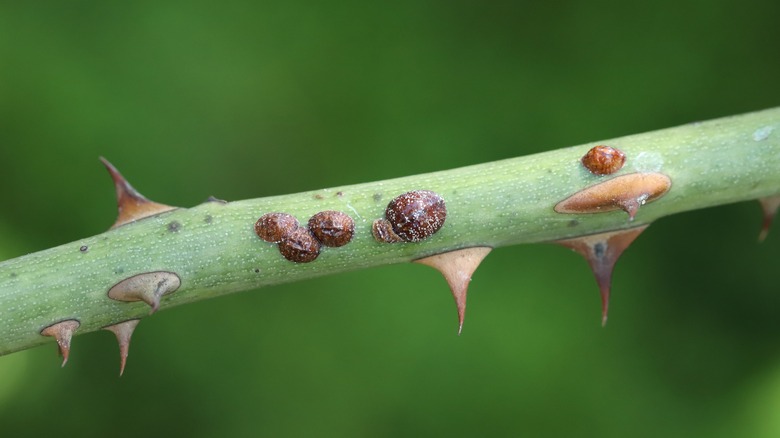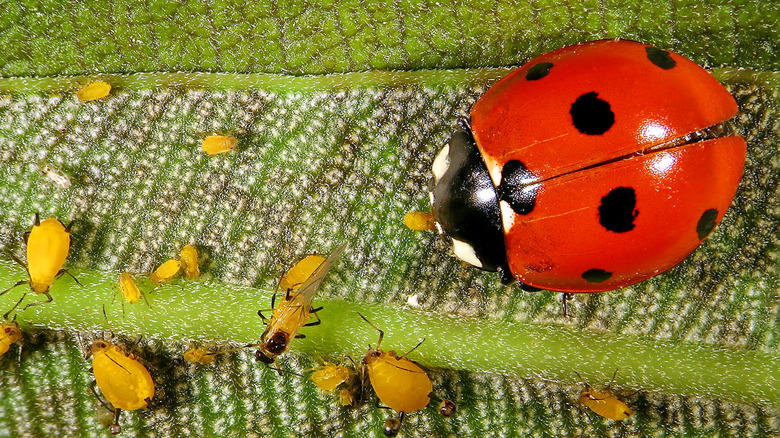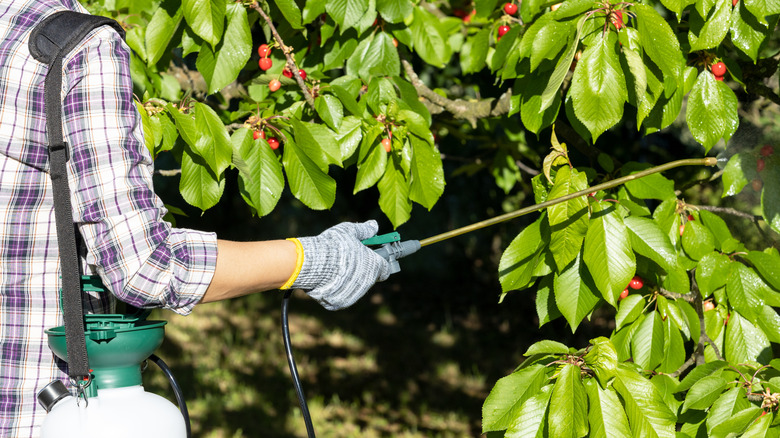Naturally Banish Sap-Sucking Scale Insects From Your Trees. Here's How
We may receive a commission on purchases made from links.
Garden pests can make or break your precious herbs and trees. If you're the type who often plants trees and forgets about them (we know ourselves), then it's going to be hard to keep up with pests, especially the tiny ones like scales. Scales are sap-sucking critters, which means that they attack the green parts of the tree — particularly the leaves — by siphoning nutrients with their proboscis. There are many ways to get rid of the scales on your tree, and while some people resort to chemical warfare, you can opt for natural means. Because they're so tiny and hard to detect, scale insects are best banished from your trees by introducing their natural predators, maintaining your trees, and using horticultural oils.
It's no secret that pesticides are detrimental to the environment. They get washed off into the soil and can contaminate it, the water, and even other animals. By sourcing scale management via the natural approach, you can save yourself the headache of dealing with toxic land.
Control scales with natural predators and proper tree maintenance
Just like every other animal on the food chain, scales have natural predators that prey on them: ladybugs and lacewings. Ladybugs are everyone's favorite bugs because of how pretty they are, but these gorgeous critters can serve a more useful purpose by reducing the scale population on your tree. Lacewings are also particularly efficient in doing this. If you are suffering from a scale pest problem and don't mind a few extra bugs in the garden, you can contact or visit any local plant nursery that breeds beneficial lacewings and ladybugs for natural garden pest control. You can also get live ladybugs and lacewing eggs from Amazon.
Proper tree maintenance is a more passive way to combat the scale pests. The idea is to build resistance by adequate watering, regular pruning, and providing the right nutrients for your tree species. Just like you need to be well-fed and in good health to boost your immune system against disease, your tree only has a fighting chance against scale pests if they are healthy and strong. If you find scale pests on a certain branch, cut it off. Prune off dead or diseased branches as well. While a few scales won't do much damage, a large population can cause stunted growth, yellowing of leaves, and death of branches if care isn't taken, so up the TLC.
Use horticultural oil spray during the crawler stage
Horticultural oil is a pesticide that doesn't harbor the long-term toxic effects of stronger pesticides. Once sprayed on scale insects, it clogs up the spiracles on their bodies that are used for respiration. This causes the insects to suffocate and die.
The tricky thing about using horticultural oil as a tool for scale management is that the window of opportunity for use is somewhat short. The best time to spray the oil onto your affected trees is when the scale insects are in their crawler stage, which is soon after they hatch. This period differs with tree species. For example, for deciduous trees, you should do it in the spring and summertime.
Because these pests typically inhabit the undersides of leaves and green parts, make sure you aim accordingly. Hard-bodied scales are harder to kill with this method compared to their soft-bodied sisters. Always go through the instruction label on the horticultural oil container to make sure you are using the right product on the right species of tree.


